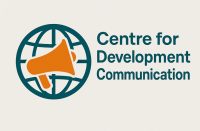When we launched our community-based family planning initiative under the Community Voice Project in Abaji Central Ward, FCT-Abuja, we entered the community armed with a well-crafted framework, technical expertise, and a robust health communication strategy. We were confident in our approach.
But the reality on the ground quickly challenged that confidence.
Our strategy failed. The community resisted. The three community gatherings we organized were poorly attended. Those who showed up—both men and women—refused to engage meaningfully. Some community influencers openly discouraged participation, while others questioned our motives and intentions.
We were deeply concerned. After all, we were promoting widely accepted knowledge: the importance of child spacing, protecting women’s health, and improving family well-being. Yet, the community appeared indifferent—almost hostile.
Everything changed the day three elders—Usman Ali, Mallam Isa, and Joy Anzaku—spoke during one of our community gatherings. One of them asked, “Why have you not asked how we have always planned our families before you came with your methods?” Joy Anzaku added pointedly, “Many of you NGOs come here to talk about family planning without involving us. You tell us to take pills, use condoms, and space our children—but you don’t ask what we already know or do.”
Their words humbled our entire team.
It became painfully clear: we had taken indigenous knowledge for granted. We ignored local wisdom on family planning—traditional beliefs around birth intervals, and the roles of respected community figures in marital guidance. By doing so, we didn’t build a communication bridge; we built a barrier.
We paused. We listened. We learned.
We began mapping indigenous perspectives on child spacing. We engaged traditional birth attendants. We consulted respected male and female elders—custodians of generational knowledge in the community. We stopped pushing Western family planning models as the only way forward.
Instead, we initiated community dialogues—connecting modern contraceptive options with locally understood practices and values. Our aim shifted from imposition to integration. We realized that the goal wasn’t to replace culture, but to align with it for greater impact.
The result? Trust returned. Participation grew. Conversations flourished. Our project began to succeed—because this time, it was co-owned by the community.
What we learned in Abaji Central Ward is simple but profound: development work cannot succeed when it disregards indigenous knowledge. Our initial failure wasn’t about funding gaps or weak policies—it was about communication that excluded context.
No community is “ignorant.” People simply have different frameworks for understanding the same issues. And if we truly want change to be sustainable, it must be built on respect, not just research.
As development practitioners, we must stop entering communities with solutions that erase the wisdom already there. True progress happens not when we teach, but when we listen. Not when we lead, but when we collaborate.
In the end, our success came—not from expertise, but from humility.
Audu Liberty Oseni
Director, Centre for Development Communication
